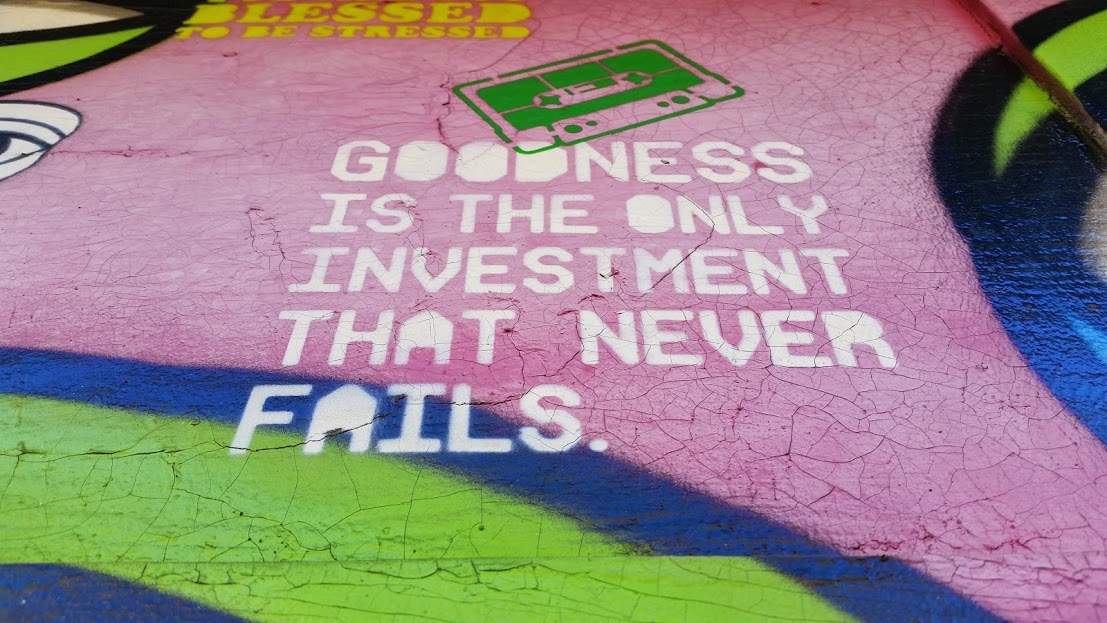 Photo Credit: Kim Pratt
Photo Credit: Kim Pratt When was the last time that you thanked a friend, coworker, or family member for something they did for you? Although we’ve been taught that it’s important to say thank you, it’s easy to take things for granted and we often forget to thank the people we see every day. In today’s post, I’ll talk about how gratitude is important for relationships and how we can improve our relationships by expressing it more.
How does gratitude promote relationships? It’s intuitive to think that gratitude makes the recipient feel better, but research has shown that gratitude does more than this: it actually improves the relationship for both parties. According to the psychologist Sara Algoe, gratitude serves to strengthen our relationships with others. Feeling grateful helps us to identify people who are responsive to our needs, and helps to bring us closer to them. In one study related to this, researchers tested the effects of gift-giving among sorority sisters. During one week of the school year, older sorority sisters gave gifts to newer members of the sorority. The researchers found that, when the newer sorority members felt more gratitude for their gifts, they later felt closer to the sorority sister who gave them the gift. In other words, when people feel grateful for something that someone has done for them, they may be more motivated to build a relationship with this person.
Another study looked at the role of gratitude in maintaining relationships. The researchers found that those who felt appreciative of their partners were more responsive to their partner’s needs and they were more committed to their relationships. In fact, they even found that people who were more appreciative of their partners were more likely to still be in the relationship months later! In other words, this research suggests that people who feel grateful for their significant other may actually do more to try to maintain their relationship.
Is it the thought that counts? If gratitude is beneficial to relationships, is it sufficient to simply feel grateful for something that someone else has done? Or do we need to express gratitude in order to strengthen our relationships? Some research suggests that expressing gratitude may be especially beneficial. In one study, participants were asked to either express gratitude to a friend, simply think about reasons they were grateful to their friend, talk to their friend about something else, or to think about neutral topics. When participants were asked to express gratitude, it changed how they viewed the relationship: they saw the relationship as one where they and their friend were there to support each other, and were willing to help each other out without expecting anything in return (something that the authors refer to as greater “communal strength” in a relationship). However, this benefit did not occur when participants simply thought about being grateful. So next time your friend or significant other does something nice for you, don’t keep it to yourself—let them know that you’re grateful! It sounds so simple, but sometimes we can be shy about sharing our feelings. However, if you try not to let this hold you back, you might find that sharing things you feel grateful for will improve your relationship.
Are some types of gratitude better than others? If you’re expressing gratitude to someone close to you, is there a particular way that you should go about it? Some research suggests that how you thank someone matters. In one study, participants were asked to thank their significant other for something, and their interaction was videotaped. The person who was being thanked then rated whether or not their partner had been responsive to them (for example, by showing that they understood and/or liked them). It turned out that people who felt that their significant other had been responsive when thanking them rated their relationship as being higher quality. So if your friend goes out of their way to do something nice for you, don’t just say a quick “thanks.” Let them know how much their actions mean to you and that you value what they did. In other words, it’s not just a polite “thank you,” but more about showing the person that you’re thinking about them and you care for them.
Sometimes it can be hard to remember to thank others. Often, we may feel grateful, but we forget to express it or assume that the other person already knows how we feel. However, recent research suggests that remembering to express gratitude can help us to become closer to others. Let this research serve as a reminder to not only think, but to also express our gratitude: it will not only feel good, but also bring us closer to our loved ones.
Further Reading:
Sara Algoe: Find, Remind, and Bind: The Functions of Gratitude in Everyday Relationships
About this Contributor: Elizabeth Hopper is a PhD candidate in Social Psychology at the University of California, Santa Barbara. Prior to attending UCSB, she received her BA in Psychology and Peace & Conflict Studies from UC Berkeley and worked in a research lab at UC San Francisco studying health psychology. Her research interests include positive emotions, close relationships, coping, and health. Outside of the research lab, Elizabeth can often be found going to yoga class, teaching her puppy new tricks, and working on her creative writing.

Leave a reply
You must be logged in to post a comment.